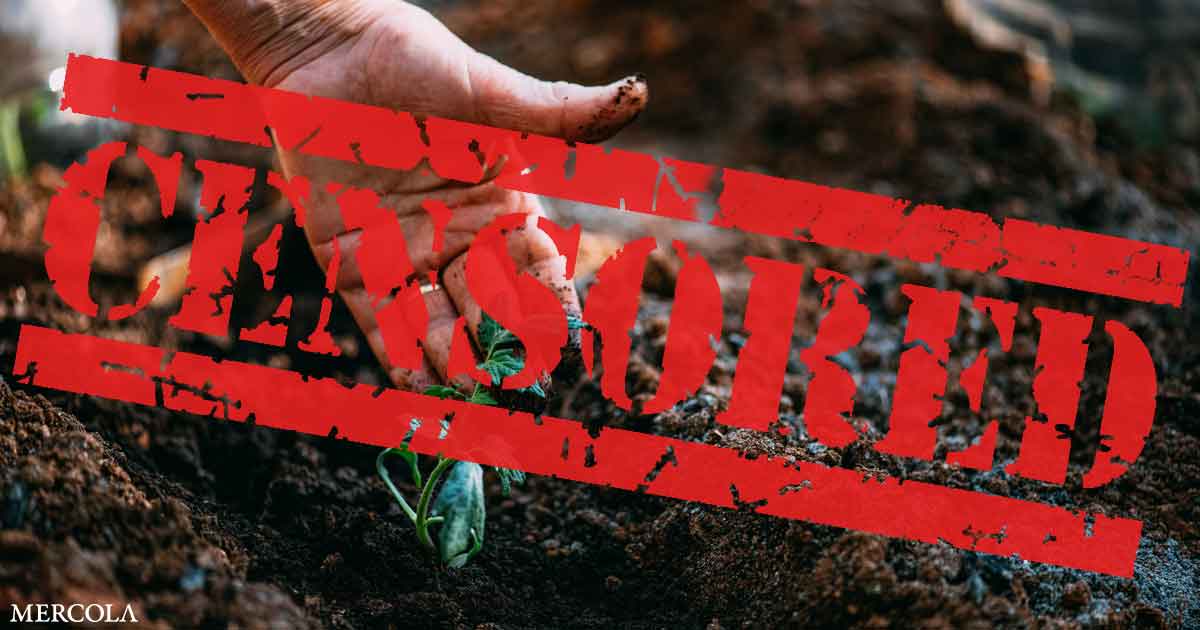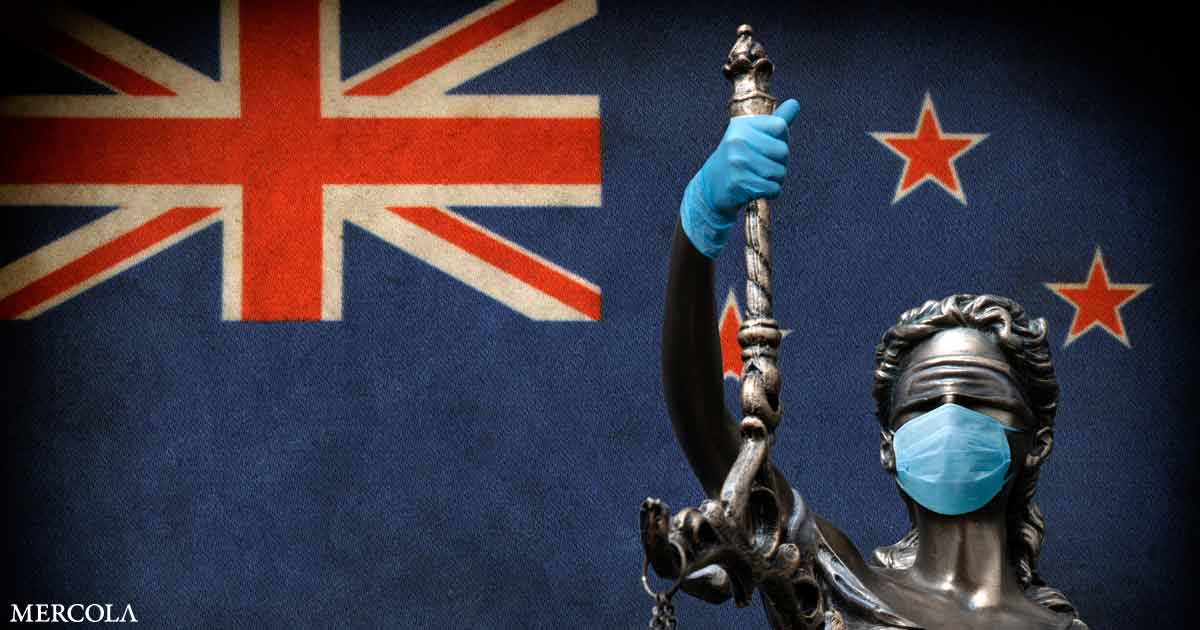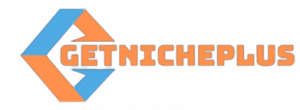
[ad_1]
In July 2020, Facebook announced they would add labels to posts from politicians “to protect the election and promote healthy civic engagement.”1 The labels were supposed to identify content Facebook thought was inflammatory, misinformation or lies, without removing the post.
Why Facebook felt they should “moderate” free speech that was not incendiary or promoted violence is a question for another time. According to left-leaning Media Matters for America,2 while the media giant continues to use labels on posts, a study of Trump’s posts found that those that were labeled as possible misinformation had significantly more interactions than those that were not labeled.
In other words, the labels appeared to engage more readers. Facebook began testing a new label in July 2021. These labels don’t just identify potential “misinformation,” but go even further to prompt readers — asking if their friends are becoming extremists.3 Historically, extreme ideas have proven to advance society or drag it back into the Dark Ages. Consider:
- Book burning by the Nazis to ensure the next generation did not have access to thoughts contrary to Hitler4
- The idea that humans can fly, leading to the Wright brothers inventing the airplane
- That electricity could be harnessed, with visionaries like Benjamin Franklin and Thomas Edison working to find ways to have light in the dark
- That the medical establishment didn’t entertain the idea of handwashing to stop the spread of disease until 20 years of data showed the practice lowered rates of infection5
The thread that runs through these extreme ideas is that censorship influences the way society thinks and therefore changes the outcome. Had the German people been allowed to think for themselves, an entire country may not have been swayed by the propaganda of one man. If the medical community were open to the idea that their behavior was killing people, they may have saved thousands.
Of course, there are extreme ideas that should not be entertained. People will never be able to fly without assistance or walk into fire without protection. Yet, without censorship, these ideas die a natural death. It’s only through debate and sharing information that the truth wins out. And the truth is the only foundation on which society can realistically and confidently continue.
Facebook Labels Gardeners as Possible Extremists
CNN reported that Facebook prompts are being shown to some individuals, cautioning them that they may know someone who is becoming an extremist. Other prompts are letting people know they’ve been exposed to extremist content. This is part of Facebook’s Redirect Initiative.6 Facebook spokesperson Andy Stone told CNN:7
“This test is part of our larger work to assess ways to provide resources and support to people on Facebook who may have engaged with or were exposed to extremist content or may know someone who is at risk. We are partnering with NGOs and academic experts in this space and hope to have more to share in the future.”
In the past, Facebook has been criticized for not acting on content that encourages people toward violence. Yet, these warnings are also attached to posts sharing information about seemingly innocuous subjects, like buying food. According to CNET:8
“One of the alerts, shared on Twitter, asks: ‘Are you concerned that someone you know is becoming an extremist? We care about preventing extremism on Facebook. Others in your situation have received confidential support.’
Another alert reads: ‘Violent groups try to manipulate your anger and disappointment. You can take action now to protect yourself and others.’”
As an image saved on archive.is from Reddit shows,9 Facebook is labeling those selling home-grown beef as “too prepared.” Compare the extremist views of preparedness to the Forbes10 report August 17, 2021, that the Taliban would have control of the Afghan social media accounts.
However, it doesn’t stop there. Twitter posts are reporting screenshots of canning and gardening groups that are also being asked, “Are you concerned that someone you know is too prepared? We care about preventing extremism on Facebook. Others in your situation have received confidential support.”
In other words, Facebook is labeling people who are preparing their food supply as potential extremists, but in August 2021, the social giant was fine with extremist groups like the Taliban taking over Afghan social media accounts.11 Twenty-four hours later, though, Reuters12 reported Facebook had a ban on the Taliban posting on the social media platform. According to vice president of content policy Monika Bickert:13
“They will not be allowed while they are prescribed by the U.S. law and even if they were not prescribed by U.S. law, we would have to do a policy analysis on whether or not they nevertheless violate our dangerous organizations policy.”
Bickert is referring to the fact that the U.S. has soft-pedaled their stance on the group as they are not on the U.S. State Department’s list of Foreign Terrorist Organizations.14 Since the U.S. has not classified them as terrorists, they can enter negotiations15 with a group whose actions historically have been less than trustworthy.16,17,18
Facebook’s definition of extremist ideas apparently conforms to the ideologies of the World Economic Forum (WEF), of which Mark Zuckerberg, co-founder and CEO of Facebook, is a member.19
For example, while some consider a guaranteed basic income paid by the government to all citizens as radical and dystopian, according to a charismatic presentation Zuckerberg made during a commencement speech at Harvard,20 moving the economic platform of the world to universal basic income is not an extremist move.
Instead, it’s something to be explored and tested. As reported by the WEF, Zuckerberg explained that “too few people had the opportunity to try out new ideas — like building his world-conquering platform.”21 This is in line with the WEF’s mission to reinvent the future22 by resetting the global economic platform.23
Facebook Activities Called to Question in Early 2019
In late 2018, PBS’s “Frontline” released a two-part film called “The Facebook Dilemma,”24,25 in which James Jacoby investigated the influence the social media giant had over the democracy of nations, and the lack of privacy parameters that allowed for tens of millions of users’ data to be siphoned and used to influence U.S. elections.
During 2019 Bloomberg26 reported Facebook was transcribing bits of audio they had recorded from users’ phones. This explained how many were seeing targeted ads after just speaking about a product or service out loud. Further research revealed even more disturbingly, Android apps were taking screen shots of your smartphone and sending the information to third parties.27
According to The Guardian,28 in 2018 Facebook had 40 journalists who worked as fact checkers located across the globe. They were split in their opinion about their fact-checking relationship with Facebook. The Guardian quoted one who said:29
“Why should we trust Facebook when it’s pushing the same rumors that its own fact checkers are calling fake news? It’s worth asking how do they treat stories about George Soros on the platform knowing they specifically pay people to try to link political enemies to him? Working with Facebook makes us look bad.”
Some journalists spoke with a reporter from The Guardian, who said they told him,30 “Facebook’s hiring of a PR firm that used an antisemitic narrative to discredit critics — fueling the same kind of propaganda fact checkers regularly debunk — should be a deal-breaker.”
The allegations into Facebook’s PR activities came after the European Parliament called for a privacy audit when it was revealed that Facebook allowed Cambridge Analytica to misuse 87 million users’ data to influence election results.31 The breach cost Facebook a mere $643,000 for the role it played, which they paid to the U.K.’s Information Commissioner’s office.
Facebook’s reported revenue for the first quarter in 2021 was $26.17 billion, up 48%, due in part from higher-priced advertising.32 Although the fine was a drop in the bucket when compared against Facebook’s revenue, it was the maximum possible penalty that could be imposed under the Data Protection Act 1998. Under the new laws passed in 2018, the maximum fine could have been $22 million.33
The reporter from The Guardian wrote that one of the fact checkers, Brooke Binkowski, shared how Facebook influenced their work, sometimes to protect their advertisers, writing:34
“… it appeared that Facebook was pushing reporters to prioritize debunking misinformation that affected Facebook advertisers, which she thought crossed a line: ‘You’re not doing journalism any more. You’re doing propaganda.’”
This is inline with current activities, since extremist content that shares preparedness, self-reliance, and evidence-based data about viral spread, masking or shot programs may have an impact on the push toward the “Great Reset.”
Facebook’s Prepandemic Campaign Against Vaccine Information
Facebook’s campaign against people sharing information about vaccination programs had grown in strength even before the COVID-19 genetic therapy shot program. As I reported in early 2019, it was likely driven to protect the interests of their pharmaceutical advertisers.35,36,37
While many believe vaccination programs are not lucrative, consider Pfizer’s Prevnar 13 vaccine, which is supposed to protect against common strains of pneumonia and made three times more money than Viagra in 2015.38
The rising profits from Prevnar 13 in 2015 were thanks to the U.S. government’s recommendation to start using it in adults over 65, and not just in children.39 As noted in the Financial Times,40 “… the success of Prevnar shows [vaccines] can be as lucrative as any drug.” So, if you have forums on Facebook sharing true experiences about vaccine side effects, you can see why Pfizer wouldn’t want those comments left there.
When you have a profitable business, you want to promote sustained growth. This means nurturing and protecting your products and services. That’s normal in the world of business. What is not normal is enlisting the government to mandate the use of your product while simultaneously preventing sharing bad reviews that impact sales or force you to improve the safety or effectiveness of the product.
So, what was happening in the vaccine industry before 2020 has continued during the pandemic. The push to censor negative press about vaccines on Facebook has been outright shocking. The justification is that “misinformation” prevents people from making sound medical decisions.
It’s the same justification being used by Facebook to label any information about the COVID vaccine41 as false or cautions people planting their own gardens against “extremist thoughts,” while offering “confidential support.”42
Government Asking Social Media to Ban Research
Christina Parks, Ph.D., has her degree in cellular and molecular biology. In this short video she testifies before the Michigan House on Bill 4471, which seeks to prohibit vaccinations as a condition of employment in Michigan. You likely have read or heard the information she shares about COVID, flu and DTap vaccines if you’ve been reading my newsletter.
Yet, the science she’s quoting is the very information that Facebook, and the U.S. government would like to ban from social media sites. To manipulate and influence your behavior, it is essential that you do not understand the science behind viral pathogens and the vaccines that hope to control those infections — and that means stopping you from learning scientific truths by any means possible.
July 16, 2021, during a White House briefing43 press secretary Jen Psaki admitted that the Biden Administration is alerting social media companies to posts and accounts that the White House believes is peddling “misinformation” about COVID injections. This is illegal and a violation of First Amendment rights. During the briefing she cited the “Disinformation Dozen” report released by the Center for Countering Digital Hate (CCDH).44,45
The report claims that 65% of anti-vaccine content on Facebook and Twitter comes from 12 individuals, including me. After this “disinformation” report was virally spread, the truth was revealed in an August 18, 2021, report from Bickert at Facebook, setting the record straight, and in the process demolished the CCDH’s claims. The report revealed:46
“In fact, these 12 people are responsible for about just 0.05% of all views of vaccine-related content on Facebook. This includes all vaccine-related posts they’ve shared, whether true or false, as well as URLs associated with these people.”
As the image on Reddit47 aptly demonstrates, Facebook now promotes the idea that growing food and buying food from farmers may make you “too prepared.” They will warn your friends they have been exposed to extremist ideas and can receive confidential support to ensure they don’t follow suit.
[ad_2]
Source link







